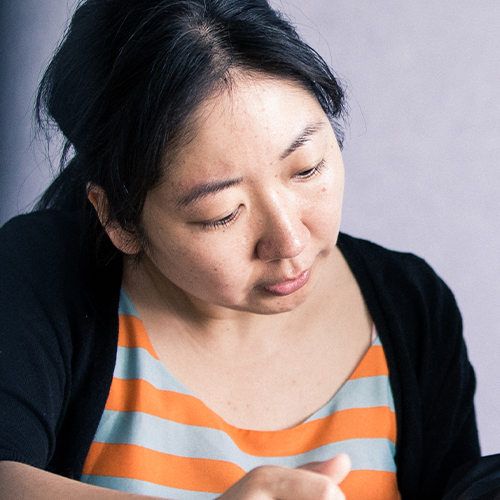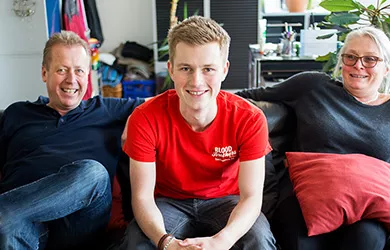
Treatments & Therapies
The haemophilia care landscape has changed dramatically over the decades, and so has our scientific understanding of haemophilia. Discover more about haemophilia therapies and the holistic approach to treatment.
Haemophilia treatment
Scientific advances in our understanding of haemophilia means that more people are getting the right help and treatment, and the haemophilia care landscape has improved dramatically over the decades.
The treatment for haemophilia is generally known as 'factor replacement' which means that the person is given a concentrated dose of clotting factor — which factor depends on which type of haemophilia they have.
The standard of care for all patients with severe haemophilia is regular replacement therapy (prophylaxis) with clotting factors, or other drugs to stop bleeding, started early in life (before age 3). The most recent guidelines for haemophilia care do not recommend 'on demand' treatment as a long term treatment option.
THE CLOTTING PROCESS


VESSEL CONTRACTS

PLATELET PLUG

FIBRIN CLOT
Development of inhibitors
Inhibitors pose a considerable difficulty in haemophilia treatment and care. Inhibitors occur when the body has an immune response to treatment with clotting factor concentrates and recombinant factor products, which means 'standard' treatment becomes ineffective. The medical and scientific community are continuing to work towards preventing the development of inhibitors, as well as establishing how best to manage treatment for those who have already developed inhibitors. Treatments include:
- Bypassing agents can be used to treat bleeding episodes. Instead of replacing the missing factor, they go around (or bypass) the factors that are blocked by the inhibitors to help the body form a normal clot
- Bispecific antibodies are artificial proteins that are designed to mimic the function of the missing factor. They bridge together two different types of factors to help continue the natural clotting mechanism
- Immune tolerance induction (ITI) can directly remove inhibitors from the person's blood, the process can however take quite a long time, from months to years of therapy
A holistic approach to treatment
There are many different aspects to haemophilia. Advancements in treatments means that people living with haemophilia, that have access to these treatments, have much lower risks of bleeding compared with treatments of the past. Treating haemophilia is now a much more holistic approach, focusing on exercise, physical activity and mental health. To find out more, visit 'living with haemophilia' where you can find more information on staying active, joint health and mental health.
An individualised treatment care plan will be developed with the help of a multidisciplinary healthcare team. If you are a carer or someone living with haemophilia and want to know more specific information about treatment, visit our 'talking to your HCP' section, to help guide conversations with your healthcare team.
References
Srivasta A et al, Haemophilia. 2020;26 Suppl 6:1-158
Carcao M and Goudemand J, Inhibitors in Hemophilia: A primer, World Federation of Hemophilia November 2018. No 7.
World Federation of Hemophilia, eLearning Centres, What are Inhibitors, 2020. Available from https://elearning.wfh.org/elearning-centres/inhibitors/#what_are_inhibitors [Last accessed January 2021]
Centres of Disease Control and Prevention, Inhibitors and Hemophilia. 2020
Oldenburg J, et al. N Engl J Medicine, 2017,377;9:809-818.
National Hemophilia foundation, Immune Tolerance 2020. Available from https://www.hemophilia.org/bleeding-disorders-a-z/overview/inhibitors/immune-tolerance[Last Accessed January 2021]



